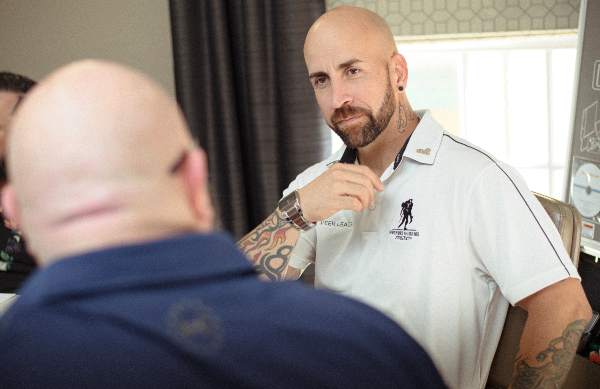Ways to Help When Someone Is Thinking About Suicide

Talking about suicide can be scary, but you don’t have to be an expert to do it. Recognizing when to ask about it, and then asking, is the key.
A simple question like, “Are you OK?” might help someone open up about their feelings and experiences.
“One of the biggest myths associated with suicide is that asking someone about it can put the idea in their head,” said Brittany Miskowiec, Ph.D., suicidologist and licensed independent clinical social worker.
“It can be tough to ask, but it doesn’t cause thoughts of suicide. The recommended way to ask is to be direct by saying, ‘Are you thinking about suicide?’”
While many might hold back for fear of saying the wrong thing, starting the conversation shows you care. Just asking the question can reduce someone’s likelihood of acting on their thoughts and might provide enough motivation to get someone to accept help.
Here are three things you can do:
- Look for warning signs. Notice any changes in mood or behavior. If someone stops showing up when they normally would or reacts uncharacteristically angrily when they’re usually even-tempered, it’s OK to ask what’s going on. When you show concern, you can help reduce that person’s sense of isolation.
- Be direct in asking about suicide. You can ask, “Are you thinking about suicide?” or “Are you thinking about killing yourself?” You’ll start a conversation that might be urgently needed or not happen otherwise.
- Stick around if there’s a crisis. Often, the situation that causes a crisis dissolves in a day or two. Keep checking on that person until they’re on the other side of that dark tunnel and can seek long-term help.
The National Suicide Prevention Lifeline offers tips and action steps to take if someone is thinking about suicide.
The acute phase of a suicidal crisis is often brief. If after talking to the person, they are still thinking about suicide and unable to stay safe, call the National Suicide Prevention Lifeline (1-800-273-8255, press 1 for veterans), go to the nearest hospital’s emergency room, or if they’re in immediate danger, call 911.
If COVID-19 restrictions keep you from checking in on someone in person, you can reach out via text, video chat, or a phone call to let the person know you care.
While the psychological pain that contributes to thoughts of suicide can be overwhelming, the support of others can help to de-escalate a suicidal crisis.
“Social connection is a protective factor against suicide and may provide hope to someone thinking about taking their life,” Brittany said.
Learn more about helping a friend or loved one through a suicidal crisis. | Read a warrior's first person account.
About Wounded Warrior Project
Since 2003, Wounded Warrior Project® (WWP) has been meeting the growing needs of warriors, their families, and caregivers — helping them achieve their highest ambition. Learn more.